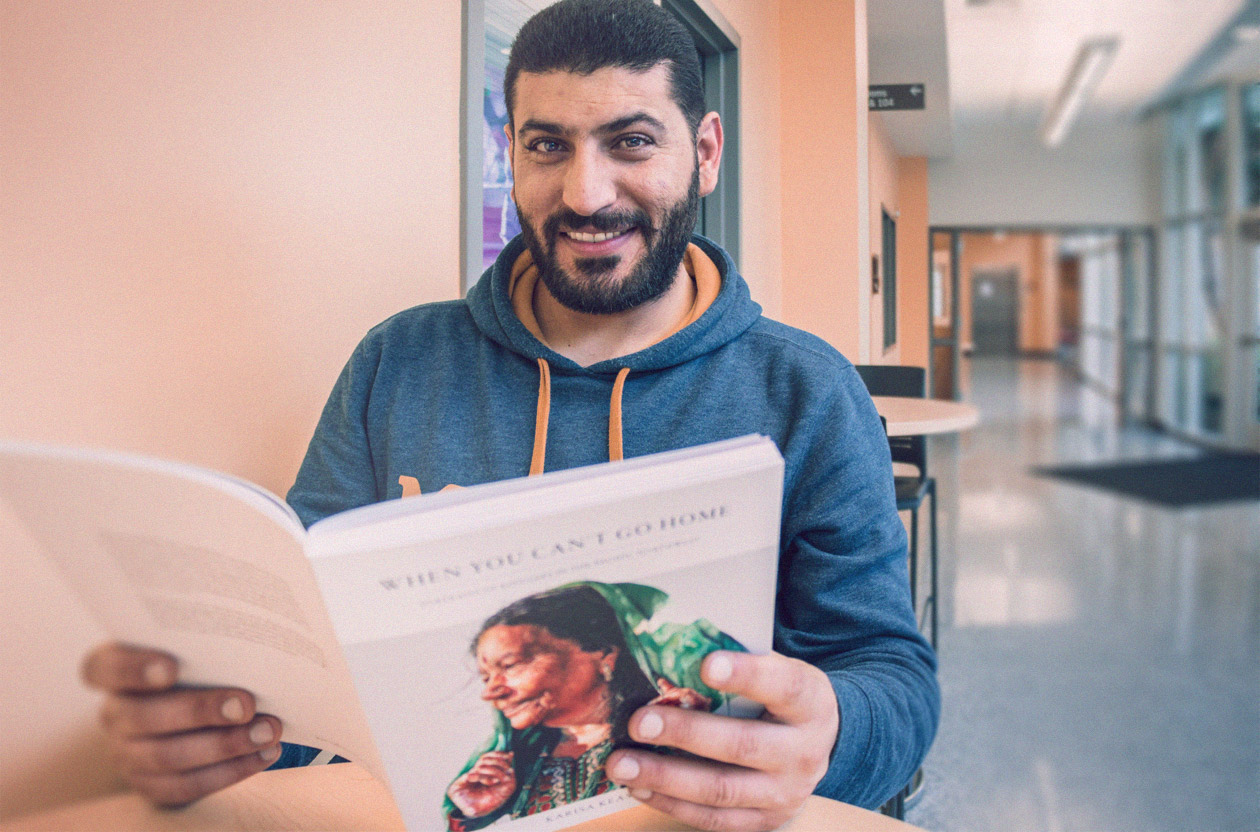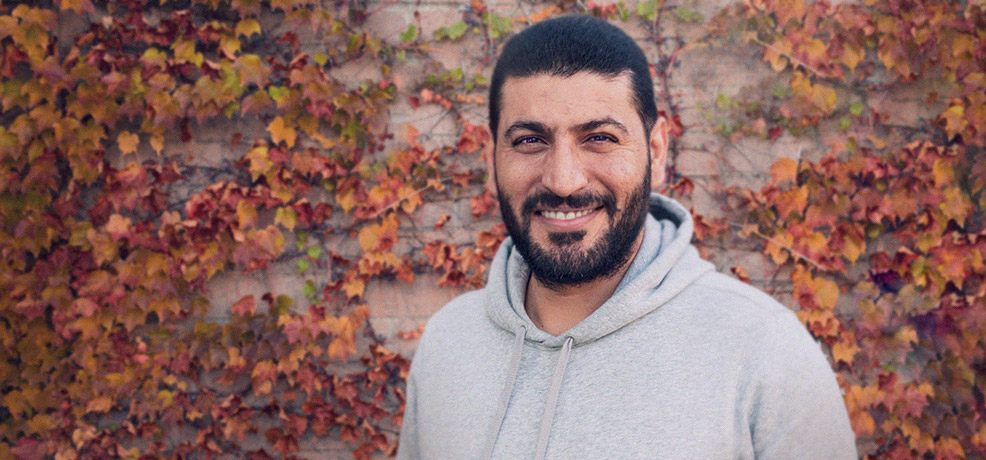Whether he's tutoring students, trouble-shooting staff computer problems, or helping with campus events, Renton Technical College student Alan Abdullah always wears his trademark smile.
Abdullah, a student in RTC's Computer Network Architecture applied bachelor's program, has endured much, but he insists on being happy, grateful, and determined to create a better life for his family.
He survived two hits from explosive devices in his native Iraq and was targeted by ISIS because he worked as a civilian translator for the U.S. Military. He immigrated to the United States to find better medical care for his wife and two children, who all share the same genetic heart condition.
He excels in school and is an involved member of the RTC community. For all his hard work, the RTC Board of Trustees nominated him for this year's Transforming Lives Award. He and the nominees from other colleges were honored Feb. 17 at a ceremony in Olympia. He also received the Students Serving Washington Presidents Civic Leadership Award in 2019.
"I saw a lot of death and some horrible things," Abdullah said. "Still, you can make changes. Don't dwell in the negative and smile. What else are you going to do?"
Abdullah's position allowed him to obtain a special immigration visa and seek safety for his family in America. His family settled in Renton, five minutes from campus. His wife took English Learning classes at RTC, and Abdullah worked at a hotel while he was waiting for a spot in RTC's Computer Science Program. He started in 2016 and completed his associate's degree in computer network technology with honors before starting the BAS program.
Thriving at school, with his children and wife receiving medical care to halt progression of their disease, he was called back to Iraq when his mother became ill. He booked an expensive ticket to fly home for two weeks. While he was there, President Trump's travel ban unexpectedly took effect.
"My wife called and woke me up to tell me, and I started to laugh, but then it became real," he said. He decided to leave early and return to his family, but even with his special visa, a Green Card, and his affiliation with the U.S. Military, he was detained and questioned for hours in the Los Angeles Airport. He was terrified at the prospect of not going home to his family.
"I didn't have anything to hide," he said. "I didn't have any mistake to pay for. I was trying to be calm."
After about five hours, and with his story gaining attention from the media, authorities released him.
"In different countries, you cannot make these things happen," he said. "I don't believe in the administration, but I believe in the people here. We appreciate the freedom of speech."
Abdullah's story is one of the many told in a beautiful new book, "When You Can't Go Home." Half the proceeds go toward helping refugee families thrive. He and his wife are passionate about teaching their children The Holy Quran so that they can discern who is using religion for nefarious purposes and will not be caught unaware.
"We teach our kids that it does not matter what color you are, doesn't matter what religion, you must treat people with respect and welcome them," he said. "That is how humanity will continue."

On top of his two campus jobs, Abdullah drives for rideshare services to supplement his income. His family has moved 40 miles north to Everett for less expensive housing, but he says the drive to RTC is worth it.
"Nope, I'm not quitting, because it's a chance I will never get again," he said, flashing that smile. "It's not about the location, it's about the people. The help I get at Renton Technical College is amazing and beyond the imagination that I pictured in my mind. If you want any kind of help, people will help you."
He's also grateful for RTC Foundation scholarships he has earned that help him pay for school.
Abdullah worries about his family in Iraq and misses out on family events like marriages and new babies, but he's afraid to go back. Still, he's grateful his wife and children are safe, getting healthier, and have a warm place to live and food on the table.
"These are basic needs if you ask anyone else, but for us, it is a luxury," he said. "We have safety and a better life."
He looks forward to completing his BAS degree next year, going to work, and having more time with his kids.
"They know I'm working a lot, and sometimes they ask me when are you going to come home?" he said. "When I'm done, I will rest."
